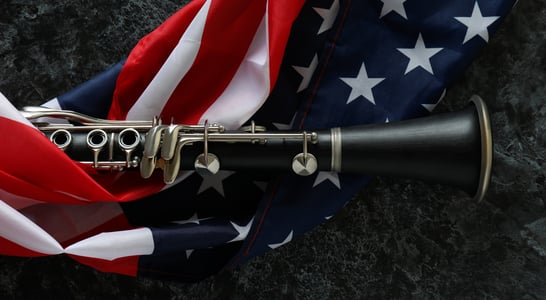
Welsh Language Music Day
Welsh Language Music Day, known as Dydd Miwsig Cymru, is a lively celebration of music in the Welsh language. It brings together people from all walks of life to enjoy the rich variety of Welsh tunes, from rock and punk to folk and electronica.
By engaging with Welsh music, participants can experience the beauty and uniqueness of the language, making this day a joyful celebration of both music and culture.
How to Celebrate Welsh Language Music Day
Tune into Welsh Playlists
Explore the sounds of Wales by diving into curated Welsh language playlists. Platforms like Spotify and YouTube host a variety of genres.
Find your new favorite Welsh artist or rediscover classics. Singing along is encouraged, even if the words are a bit tricky!
Attend a Local Gig
Local venues often host special events on Welsh Language Music Day. From pubs to community centers, there’s a chance to enjoy live performances.
Check local listings and support your neighborhood artists. Nothing beats the energy of a live gig!
Host a Welsh Music Party
Throw a party with a Welsh twist! Create a playlist featuring popular Welsh bands and invite friends over. Serve some traditional Welsh snacks to complete the experience. It’s a fun way to share and celebrate Welsh culture with others.
Learn a Welsh Song
Why not take this opportunity to learn a Welsh song? Pick a tune that you love and learn the lyrics. Impress friends and family with your new skills. Plus, it’s a fantastic way to get closer to the language.
Share on Social Media
Join the online celebration by sharing your favorite Welsh music on social media. Encourage friends to listen and spread their love for Welsh music. Your post might introduce someone to their new favorite song!
Why Celebrate Welsh Language Music Day?
This day is an exciting opportunity to discover new artists and immerse yourself in the vibrant Welsh music scene. The event highlights the importance of the Welsh language and its cultural heritage. Celebrating Welsh Language Music Day encourages people to embrace and support Welsh music.
It also serves as a platform for Welsh-speaking artists to showcase their talents to a wider audience. The day fosters a sense of community and pride, uniting everyone through the universal language of music.
Welsh Language Music Day is for more than just Welsh speakers. It’s a celebration for everyone, promoting inclusivity and cultural exchange and it provides an informal setting for people to enjoy and learn more about the Welsh language.
History of Welsh Language Music Day
Welsh Language Music Day, known as Dydd Miwsig Cymru, started in 2013. Radio presenter Huw Stephens founded this special day to celebrate Welsh music and its cultural impact. This event showcases the richness of Welsh language music, from traditional folk to modern genres like rock and electronica.
The main goal of this day is to promote Welsh music and encourage people to explore artists who sing in Welsh. It aims to support and boost the visibility of Welsh language music worldwide.
Events on this day range from concerts and gigs to workshops and community activities, making it a vibrant celebration for everyone involved.
Over the years, the day has grown, with events not just in Wales but in cities like London and even internationally.
Community involvement plays a big role, with local groups and initiatives organizing activities to engage both Welsh speakers and learners. The day serves as a reminder of the importance of keeping the Welsh language alive through music.
Also on ...
View all holidaysNational Bubble Gum Day
Chewy, colorful, and bursting with flavor, this sweet treat is perfect for blowing bubbles and bringing a smile to your face.
Rose Day
A garden's most captivating blossoms, roses come in an array of hues and unleash an enchanting fragrance that fills the air.
National Wear Red Day
Rocking vibrant red outfits to spotlight heart health sends a powerful message of awareness and support for a cause that truly matters.
We think you may also like...
Chinese Language Day
Fire up Duolingo, Rosetta Stone, or sign up for a language class to learn the world’s second most widely spoken language, which dates back as far as 1250 BCE.








